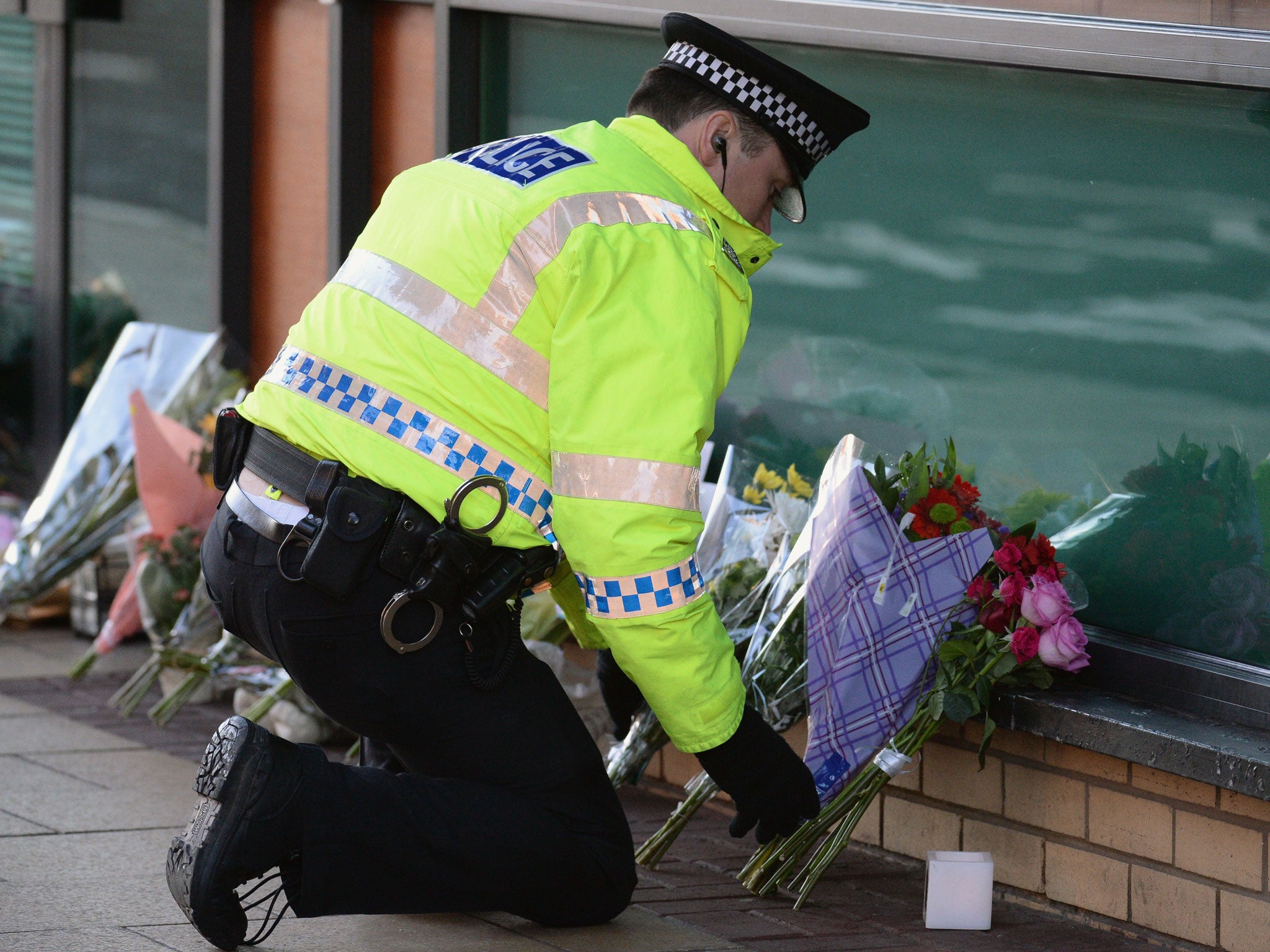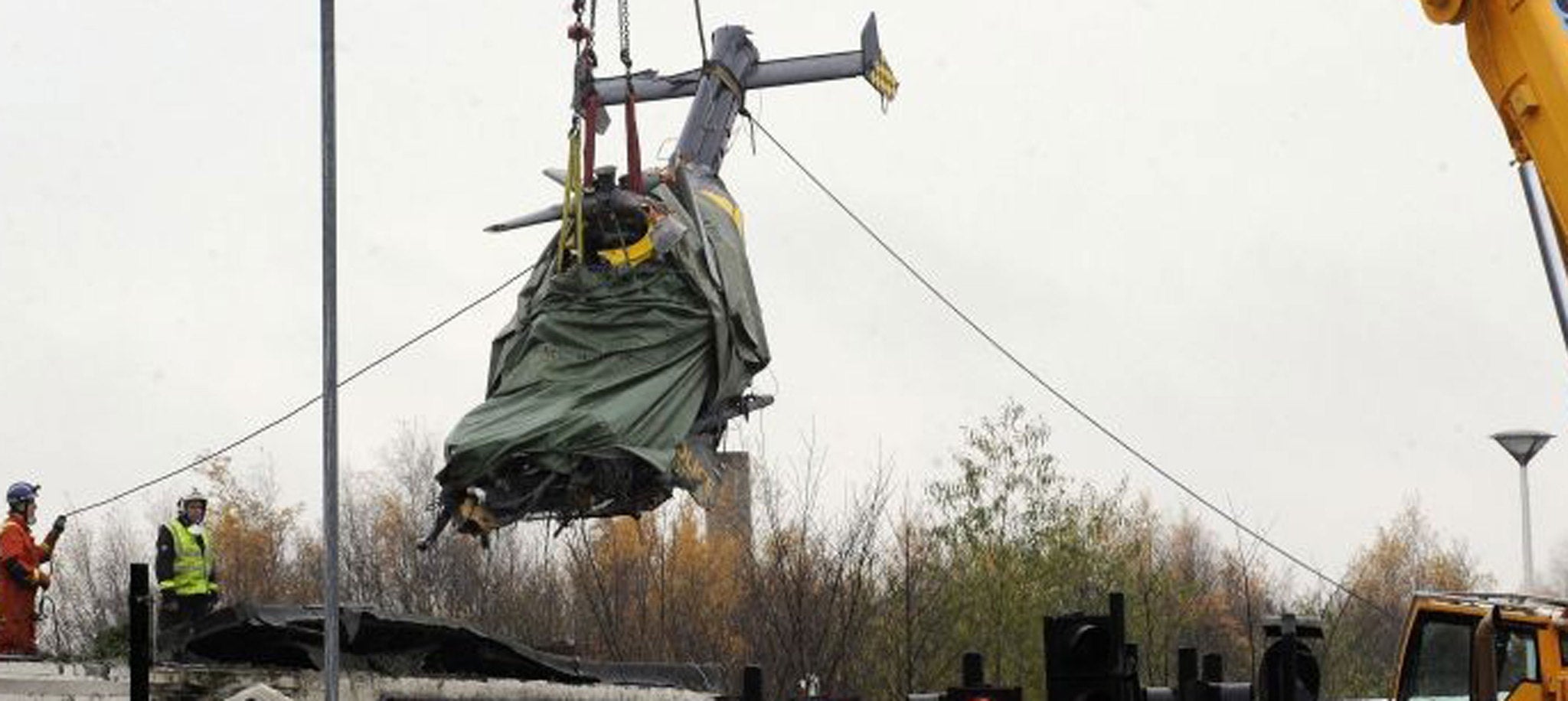Glasgow helicopter crash: engines thought to have caused the incident that killed 10 people
A report by the Air Accidents Investigation Branch gives more answers into the crash

Your support helps us to tell the story
From reproductive rights to climate change to Big Tech, The Independent is on the ground when the story is developing. Whether it's investigating the financials of Elon Musk's pro-Trump PAC or producing our latest documentary, 'The A Word', which shines a light on the American women fighting for reproductive rights, we know how important it is to parse out the facts from the messaging.
At such a critical moment in US history, we need reporters on the ground. Your donation allows us to keep sending journalists to speak to both sides of the story.
The Independent is trusted by Americans across the entire political spectrum. And unlike many other quality news outlets, we choose not to lock Americans out of our reporting and analysis with paywalls. We believe quality journalism should be available to everyone, paid for by those who can afford it.
Your support makes all the difference.An interim report into the Clutha pub helicopter crash in Glasgow that claimed 10 lives last year, shows that both of the aircraft’s engines failed before the incident.
In the latter stages of the flight on the night of 29 November, the right engine “flamed out and shortly after the left engine flamed out” before crashing into the pub's roof, said the report from the Air Accidents Investigation Branch (AAIB).
Examination of the engines showed "no evidence of foreign object damage or intake or exhaust blockage in either engine".
The left engine fuel filter was found to contain a small amount of fuel while the right engine was empty. Both engine fuel control units were "serviceable in all respects".
But the report also said that 76kg (168lb) of fuel of the Eurocopter EC135 was left in the main fuel tank and the continuing investigation into the crash “will seek to determine why a situation arose that led to both the helicopter's engines flaming out when 76kg remained in the fuel tank group”.
It added the helicopter had 400kg (882lb) of fuel on board - sufficient for about one hour and 35 minutes of flight - when it left Glasgow City Heliport at 8.45pm to support police operations.
It had then gone about 40 miles east to Dalkeith in Midlothian, staying there for a further 10 minutes before returning to Glasgow.
At 10.18pm the pilot requested clearance from air traffic control to re-enter the Glasgow control zone to return to the heliport. This was approved and no further radio transmissions were received from the pilot.
The AAIB added that radar contact with the helicopter was lost at 10.22pm.
The organisation had been closely examining the helicopter's fuel system and said there was no evidence that fuel had leaked from the aircraft before or during the impact with the pub.

Funerals for the victims were held in December last year, including helicopter crew members Pilot David Traill, 51, PC Tony Collins, 43, and PC Kirsty Nelis, 36, and pub customers Joe Cusker, 59, John McGarrigle, 57, Mark O'Prey, 44, Gary Arthur, 48, Colin Gibson, 33, Robert Jenkins, 61, and Samuel McGhee, 56.
More than 100 people were in the popular city centre bar, near the River Clyde, at the time of the crash.
Thirty two other people suffered injuries, 12 seriously.
There have been calls for a public inquiry into the safety of all commercial flights in the UK in the wake of the incident.
Last month, it emerged that the helicopter operator had begun making interim payments to the victims.
Thompsons Solicitors, who are representing more than 50 victims of the Clutha tragedy, said the move would help their clients cover loss of salary while compensation is agreed.
John Fyall, spokesman for helicopter operator Bond Air Services, said: "This is another step in the AAIB's systematic investigative process. All concerned understand this process will be a long and complex investigation."
The AAIB said the continuing investigation would also want to find out why "no emergency radio transmission was received from the pilot, and why, following the double engine failure, an autorotative descent and flare recovery was not achieved".
This was the second interim report into the helicopter, which crashed while crew were assisting police.
Additional reporting by PA
Join our commenting forum
Join thought-provoking conversations, follow other Independent readers and see their replies
Comments